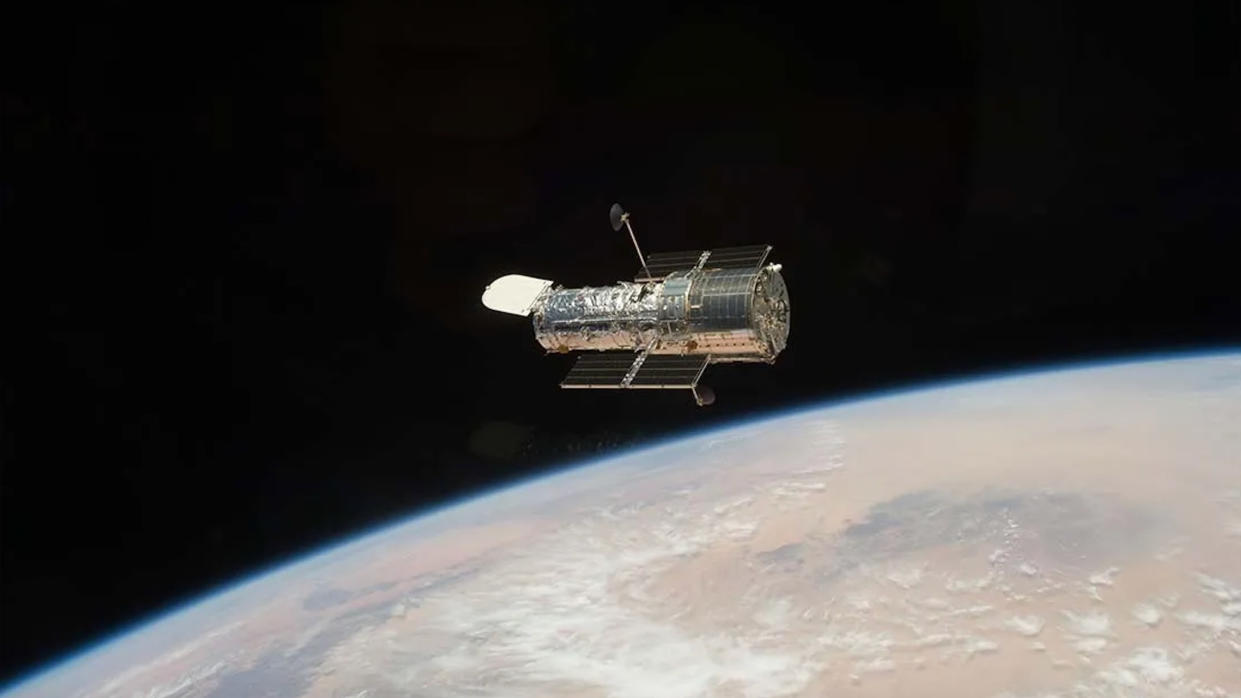Hubble Space Telescope is in safe mode — but scientists aren't too worried

On Wednesday (Nov. 29), NASA confirmed that the Hubble Space Telescope, one of humanity's favorite bridges to the cosmos, automatically entered safe mode on Nov. 23. That marks the third time this has happened since Nov. 19. However, mission scientists assure that the observatory remains in good health, and that they're working to resolve the issue and bring Hubble back on again.
The reason for the break in operations lies with issues concerning one of the observatory's gyroscopes. Gyroscopes in general are devices containing either rapidly spinning wheels or circulating beams of light that can help determine whether an object is facing the direction we want it to face. The Hubble Space Telescope's gyroscopes are quite important given the Earth-orbiting observatory is meant to identify and image very specific regions of deep space for scientists to investigate back on the ground. More specifically, they measure the telescope's turn rates, according to a NASA statement, to get those directional readings.
Related: Hubble Space Telescope spies multiple galaxy clusters masquerading as one (image)
In 2009, six new gyros were installed on Hubble thanks to the fifth and final space shuttle servicing mission — in which astronauts actually flew up to Earth's orbit and physically tended to the telescope — but only three remain operational. It's one of those three, NASA explained, that seems to be creating some trouble.
It would appear that this "faulty" gyroscope is providing fluctuating readings. Those fluctuations initially sent Hubble into the automatic "safe mode" it's currently in on Nov. 19, but then scientists brought it back online the following day. Things went downhill again on Nov. 21, but the team, sure enough, pulled Hubble out of its woes once again. However, the telescope's most recent entrance to safe mode, on Nov. 23, has persisted.
"While in safe mode, science operations are suspended, and the telescope waits for new directions from the ground," NASA said.
But before you get too worried and start racking up your goodbyes to Hubble, remember that the telescope's caretakers are not. First of all, this isn't the first time the observatory — lovingly called "The People's Telescope" back in the day due to those inspiring servicing missions — has battled gyroscope setbacks. In 2018, for instance, Hubble entered safe mode for nearly the same exact situation, maybe even a worse one as a gyroscope totally failed during that dilemma. And clearly, the telescope came back online, dutifully providing us with a slew of stunning galactic imagery rich in scientific data, a Hubble specialty.
Related Stories:
— Hubble Telescope investigates nearby exoplanet, finds it's Earth-size
— Chinese astronomers say their new space telescope will outdo Hubble
— NASA's Hubble, Chandra space telescopes face possible budget cuts: report
Furthermore, NASA says Hubble doesn't even really need to use all three of its remaining gyroscopes. The team taps into the entire set for maximum efficiency, but theoretically, the telescope can function just fine with one.
Hubble has been a force since its first launch in 1990, and NASA isn't even thinking about wrapping its story up yet.
